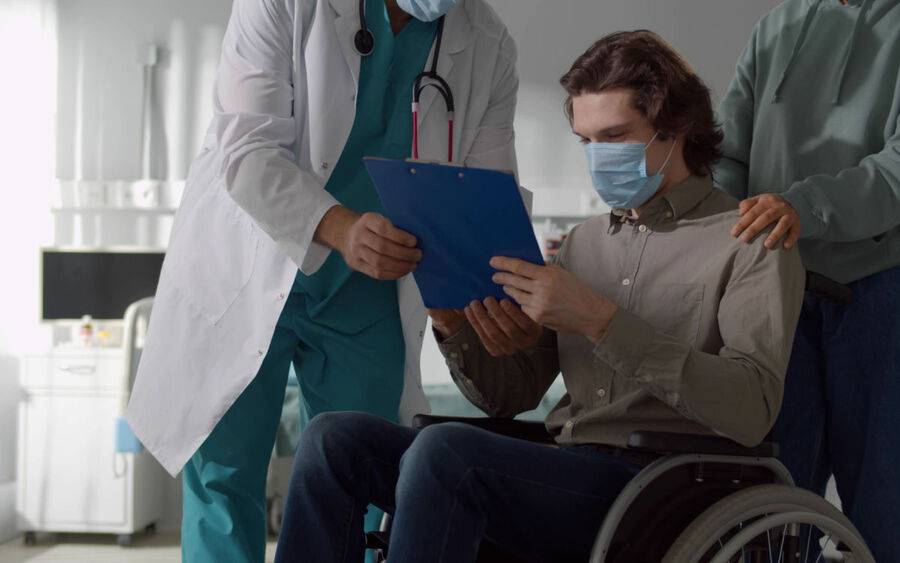What to Do After Hospital Discharge
Caregivers play a big role in preventing hospital readmission

Caregivers play a big role in preventing hospital readmission
Being in the hospital is a difficult experience for most people. The goal is always to get better, get discharged, recover at home and avoid a return trip to the hospital.
That is why it’s so critical for you or your caregiver to know what to do after hospital discharge.
“Our goal is to try to avoid you from being readmitted for something that could have been prevented,” says Ghazala Sharieff, MD, MBA, chief medical officer, clinical excellence and experience at Scripps Health.
Hospital readmissions occur when patients who’ve been discharged are readmitted within a short period. Many return trips to the hospital are necessary, but some are preventable with planning and communication.
What is discharge planning?
Discharge planning is a process that determines the kind of care a patient will need after leaving the hospital. A patient could be sent home or to another care facility for ongoing care, depending on their condition and needs.
“When you’re ready to leave the hospital, a member of your care team will go over the information you need before you go home, including information that you need to be able to take care of yourself, such as the purpose and side effects of medications, special equipment you may need, follow-up appointments and phone numbers to call for help,” Dr. Sharieff says.
“It’s important that you or anyone assisting you understand what to do and follow the written discharge information.”
Consider the following tips to avoid a trip back to the hospital.
1. Get caregivers involved early
Friends or family caregivers play an important role with discharge planning, especially when it comes to seniors or patients with serious health conditions who are at higher risk for hospital readmission.
Caregivers are often tasked to help manage medications, prevent accidents at home, provide transportation, follow all doctor’s orders and other care. Hospital staff can recommend home care services to help with those tasks.
“One of the most important jobs that a caregiver has is to be actively present during discharge and make sure they understand the patient’s medical condition at time of discharge and what type of follow up care he or she will need,” Dr. Sharieff says.
Caregivers should know what to watch for and receive any training needed to provide care at home.
Younger patients may also need a caregiver or patient advocate present during discharge. They may be groggy from being on medication or after a procedure and need help understanding their care plan after leaving the hospital.
Plan to have your caregiver drive you home. Patients who’ve had surgery and received anesthesia are not allowed to drive themselves home.
2. Repeat patient instructions
Hearing instructions and repeating the information back to the discharge nurse is helpful to fully understand instructions. “Don’t hesitate to ask for something to be explained again if you do not have clear understanding, no matter how small it may seem,” Dr. Sharieff says.
If you or your caregiver speak a language other than English, make sure to ask for a translator at the hospital.
3. Schedule a follow up
You may need to make an appointment with a physician after being discharged. Your caregiver or hospital staff can help you schedule it. Follow-up visits are important to monitor a patient’s progress.
“Use the appointment to discuss any health concerns, including any adjustments you may need to make with your medications or activities,” says Dr. Sharieff.
4. Prevent medication mix up
Medication problems are among the most common reasons patients have to be readmitted to the hospital.
“Make sure you receive written and oral instructions about what to take, what not to take and when and how to take medicines,” according to Dr. Sharieff. “Your caregiver can be very helpful and make sure instructions are well understood before you leave the hospital.”
Also, be aware of any side effects and who to call in case you need to adjust your dose, dose schedule or a different prescription.
5. Know who to call if you need help
Your discharge plan will include information on who to call for care questions and where you can get help if you don't feel well or have a concern.
It is crucial that you or your caregiver know the warning signs that something is wrong and have a plan. Sometimes you do need to call 911.
Discharge at Scripps
Scripps has programs and practices in place to help patients smoothly navigate through the system and help them recover faster.
“The goal is to help patients across the continuum of care, from hospital admission to discharge and after they’ve returned home,” Dr. Sharieff says.
At Scripps, case managers or social workers provide assistance to patients and their caregivers to ensure a safe and appropriate discharge from the hospital. This may include continued care at home with the help of home health services.
Scripps offers a full range of home-based care services, including doctors and care managers who can pay visits to care for patients with chronic conditions who need continuous care.